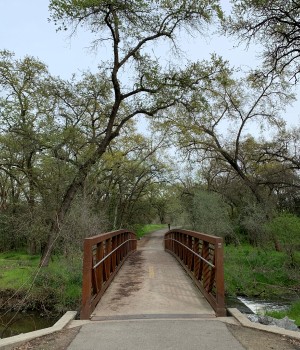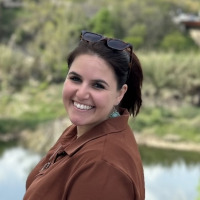Substance Abuse Statistics in Rocklin, CA
Like many California cities, Rocklin and Placer County as a whole have seen alarming increases in opioid-related deaths since 2015. But opioids aren’t the area’s only drug-related concern. Data collected by county health and law enforcement authorities and the California Department of Health shows that:1, 3, 4, 5
Placer County saw a 450% increase in fentanyl-related deaths from 2019 to 2021.
Alcohol-related deaths in the county increased by nearly 14% from 2015 to 2020.
Levels of Care for Substance Misuse
Multiple levels of care exist for alcohol and drug rehab in California. Some residents require all levels of care during their journey to recovery, while others receive only the less intensive options.
Medical Detox
Detox is the process of safely and comfortably removing drugs or alcohol from your system while in a supervised medical setting. Many people choose a medical detox program to prevent severe withdrawal symptoms. This is often the first step in the recovery process, completed before transitioning into formal inpatient addiction treatment services.
Inpatient Care
An inpatient or residential setting involves living at an accredited rehab facility 24/7 to receive treatment for addiction. A combination of evidence-based interventions are provided, including individual and group therapy, nutritional counseling, and medication administration.
Partial hospitalization programs (PHPs)
PHPs are a type of outpatient treatment in California that often involve many of the same therapies and methods of inpatient care. The difference being that you only visit the drug rehab during scheduled session times, then you can return home.
Intensive Outpatient Programs (IOPs)
A step down from PHPs, IOPs are a type of outpatient treatment in California allowing you to attend onsite sessions for several hours a day, multiple days each week, while spending the rest of your time at home, working, or fulfilling other obligations.
Standard Outpatient
As the least intensive setting, standard outpatient care is appropriate for California residents who are highly motivated and have a strong support system. It involves just one or two hours of treatment per week.
Relapse Prevention
Aftercare, or relapse prevention, provides ongoing support after a rehab program is complete. Aftercare may include 12-step groups, non-12-step groups like SMART Recovery, ongoing therapy, sober living homes, and more.
How to Pay for Substance Misuse Treatment in California
Private Insurance
Every insurance provider in the U.S. is required by law to provide at least some coverage for mental health and substance misuse treatment. In California, residents should contact their insurance provider to confirm specific coverage with their carrier, including applicable copays.
Medi-Cal
Medi-Cal is California’s Medicaid program. Funded by federal and state taxes, this program pays for medical services for children and adults who have limited income. To qualify for Medi-Cal, California residents must meet income requirements and be one of the following: pregnant, responsible for a child under 21 years old, blind, disabled or a disabled family member, or 65 years or older.
California Medicare
California Medicare is a government program providing coverage to residents who are over the age of 65 or who have end-stage renal disease. California residents can use Medicare to cover the cost of rehab and other addiction treatment services; however, not all rehabs accept Medicare insurance.
Sliding Scale Payment Options
Sliding scale payment plans only charge California residents what they can afford, based on their income. To qualify, residents typically need to provide proof of income and assets.
TRICARE in California
California TRICARE (West Region) is a government program that provides health insurance for military personnel, veterans, and their dependents. TRICARE coverage includes addiction treatment services, such as rehab and medication-assisted treatment (MAT).
IHS-Funded Drug Rehabs
Drug rehab programs funded by the Indian Health Service provide free addiction treatment to California Natives and Indigenous peoples in the U.S.
Local Information: Traveling to and Within Rocklin, CA
 Are you considering a Rocklin alcohol or drug rehab and currently live outside the city? Do you want to visit a loved one who’s in long-term alcohol or drug rehab in Rocklin? Either way, here’s some useful information to help you plan your trip:6, 7, 8
Are you considering a Rocklin alcohol or drug rehab and currently live outside the city? Do you want to visit a loved one who’s in long-term alcohol or drug rehab in Rocklin? Either way, here’s some useful information to help you plan your trip:6, 7, 8
- If you want to fly to Rocklin, Sacramento International Airport is roughly 25 minutes away by car.
- Rocklin is well connected to several major transit routes, as the city is just 21 miles from Sacramento. You can reach transcontinental Interstate 80 in minutes, as well as Interstate 5 and several major state routes.
- Rocklin has a few national-chain lodging establishments, but you’ll find a wider selection of hotel and motel options if you travel to nearby Roseville.
- Placer County Transit Agency (PCTA) runs bus service from Rocklin to Sacramento. The Placer County Express commuter bus also serves Rocklin and travels along Interstate 80 from Colfax to Sacramento.
- Uber, Lyft, and Taxi rides are available in Rocklin and typically have short wait times.
- Rocklin’s crime rate is well below the national average (it’s one of California’s 20 safest cities) and was recently ranked as one of California’s top 10 cities to live in.
- Rocklin has several outdoor attractions, including Quarry Park, Kathy Lund Community Park, Twin Oaks Park, Whitney Community Park, and Whitney Oaks Golf Club.
- Folsom Lake is a 15-minute drive from Rocklin and offers several opportunities for outdoor fun.
- Downtown Rocklin and nearby downtown Roseville have several galleries, museums, unique eateries, and locally owned shops.
California Alcohol and Drug Laws
California law includes the following policies related to substance misuse:1,2,3,4,5
California Employee Protections for Drug or Alcohol Rehab: California’s labor code requires employers with 25 or more employees to provide accommodation to staff who voluntarily choose to attend alcohol or drug rehab. This may include unpaid time off or use of sick or vacation time. Employees who wish to request time off for addiction treatment may be able to request it under the Family and Medical Leave Act or the California Family Rights Act.
Substance Abuse and Crime Prevention Act: This act provides treatment opportunities for individuals who are convicted of non-violent crimes. Eligible offenders may serve their time in drug treatment rather than in prison.
California Government Prevention and Care Services: Senate Bill 110 expanded these services to include contingency management (an incentivized treatment program) as a benefit covered under Medi-Cal. Patients who demonstrate substance-free behavior, such as drug-free urine tests, are rewarded with vouchers or gift cards.
California Ethical Treatment for Persons with Substance Use Disorder Act: This bill protects residents undergoing addiction treatment by requiring alcohol and drug rehabs in California to adopt a client bill of rights that seeks to ensure every client is treated with dignity, honesty, and respect.
California’s Good Samaritan Law: This law encourages California residents to call 9-1-1 if an overdose is suspected. It protects individuals who seek emergency medical care for overdose from legal repercussions for possession of a controlled substance/drug paraphernalia or providing alcohol to minors.
Resources
- County of Placer. (n.d.). Fighting Fentanyl in Placer County.
- Substance Abuse and Mental Health Services Administration. (n.d.). FindTreatment.gov.
- California Department of Public Health. (n.d.). California Overdose Surveillance Dashboard, Placer County Dashboard.
- County of Placer Health & Human Services Adult System of Care. (2017). Placer County Mental health, Alcohol and Drug Advisory Board Annual Report FY 2016-2017.
- Centers for Disease Control and Prevention, National Center for Health Statistics. CDC Wonder Online Database. (2021). Underlying Cause of Death, 1999-2020 Results, Deaths occurring through 2020.
- City of Rocklin. (n.d.). Public Transit.
- Rocklin Police Department. (2020). 2020 Annual Report.
- City of Rocklin. (n.d.). Rocklin Named the 7th Best California City To Live in by Business Site.


